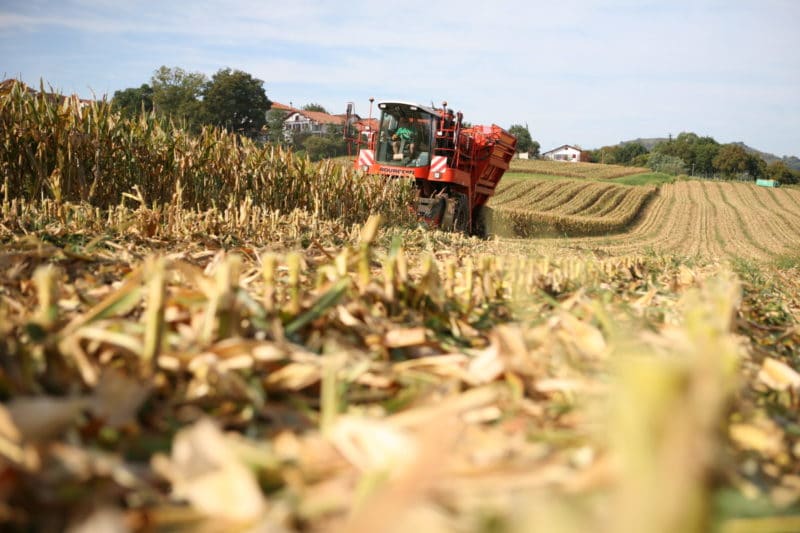
F.N.P.S.M.S and Its Mission
The French maize seed industry has been meeting the rising standards of consistency, quantity, and quality of domestic and international clients for more than 70 years now.
The maize seed production network took shape in France as early as 1950, at the initiative of leading maize professionals and cooperatives in south-western France. Placing local hybrid production above U.S. hybrid imports, these visionary actors opened the path towards a domestic industry focused on excellence, which has come to be widely-known for the competence of its experts. By doing so, they were instrumental in fostering and supporting the development of grain and feed maize in France and Europe as a whole.
To attain the current level of competence and productivity, growers and seed companies joined their forces and know-how to form the F.N.P.S.M.S., an interprofessional organisation (the National Federation for the Production of Maize and Sorghum Seeds). The system, which is unique in the world, has allowed France to strengthen its European leadership and remain the world’s first maize seed exporter.
.

The FNPSMS includes all actors involved in maize and sorghum seed production in France, namely the seed companies and the growers multiplying seeds. Maize seed producers are organised in 25 department-level or regional unions, under the overall umbrella of the A.G.P.M. MAÏS SEMENCE. The 32 seed companies – breeders and subcontractors – are part of the maize and sorghum division of the UFS (Union Française des Semenciers – the French Seed Producer Union).
The interprofessional organisation is a hub of proposals and debates on the development of French maize seed production.
Based on its members’ work, once every three years, the FNPSMS sets the strategic directions that will constitute the industry’s work priorities. This collaborative way of working, which involves the two above categories equally, enables the organisation to respond to any concerns that its members might have. The work priorities are reviewed periodically and are meant to maintain the high performance of the French industry and consolidate its leadership.
The FNPSMS objectives include three major aspects: to manage the French maize production technically and economically; to contribute to its development domestically and internationally; and to represent the local industry before the French and European regulatory and sanitary bodies.
Detailed Missions of the FNPSMS
1. Crop Inspection and Regulatory Enforcement Regarding Production
– To ensure compliance with the Technical Regulation on the production, inspection, and certification of maize seeds;
– To train and oversee the staff that carry out crop inspections.
2. Production Quality
– To support initiatives aimed at optimising the field-to-plant production process;
– To control technical obstacles in order to increase productivity and secure seed production;
– To deliver high-quality seeds that meet the requirements of international clients.
3. Industry-specific Interprofessional Laboratory
– To serve as reference in seed quality tests across the French territory;
– To facilitate exports of French-produced seeds by providing the necessary accreditations.
4. Market Watch and Forecasting
– To watch and analyse European market trends;
– To set reference economic indicators regarding seed production;
– To oversee contract terms between seed companies and growers multiplying the seeds;
– To generally secure the income of industry actors.
5. Promotion and Communication
– To promote the “Made in France” maize seeds and Western genetics;
– To support grain and feed maize production areas in France and abroad;
– To consolidate feed maize and high-moisture corn outlets through agronomic and livestock feeding trials;
– To help to bring maize back into the focus of various target-categories: grain producers, livestock growers, opinion leaders, and the general public.
6. Industry Organisation
– To allow the various stakeholders to complement one another and work together to ensure the common dynamics;
– To provide new competitive avenues and levers, to the industry.
7. Regulatory and Institutional Watch
– To track changes in effective legislation and certification standards;
– To follow innovations, as well as developments in new plant breeding techniques.